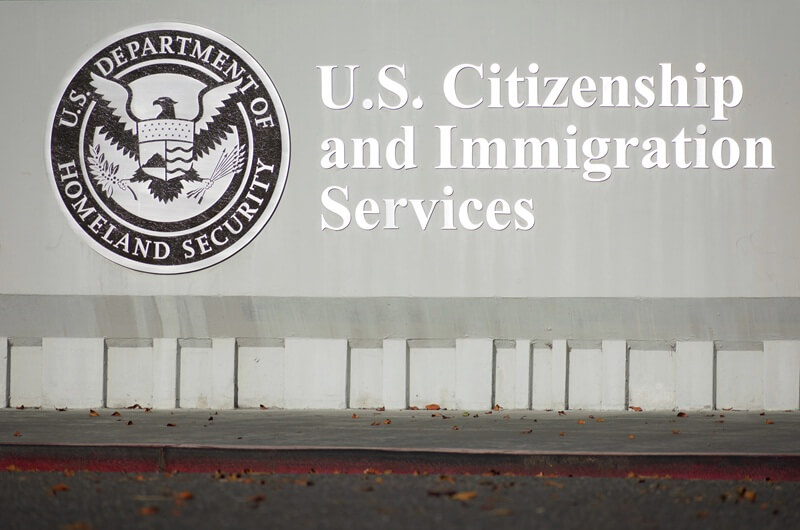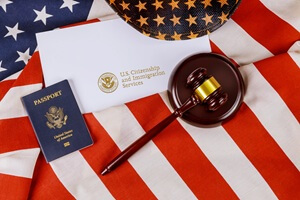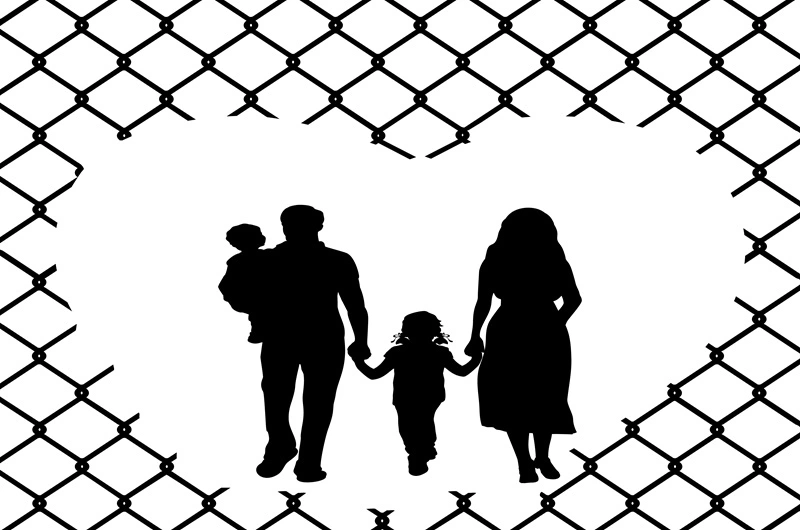How To Mitigate Citizenship Application Delays
Takeaways:
Several factors slow down your citizenship application, such as incomplete forms, background checks, and USCIS backlogs. You can check your status online, submit inquiries, or request an expedited review. Legal remedies include appeals or motions if a denial occurs. An immigration lawyer helps you avoid pitfalls and strengthen your case.
The delay of your naturalization approval seems like being stuck in limbo. You have done everything right: filed forms, met requirements, hit milestones. Yet answers and a clear timeline remain out of reach.
For many immigrants, the wait can stretch into months or even years. Backlogs, misplaced paperwork, and extended security checks often cause the slowdown. Knowing the cause of the delay helps guide your next steps.

Citizenship Through Naturalization Overview
Naturalization is the process through which a non-citizen becomes a U.S. citizen. It grants full rights and responsibilities, like voting, getting a U.S. passport, and petitioning for family.
Common Requirements
To qualify for naturalization, most applicants must meet certain legal and procedural standards. These prepare each person for the responsibilities and privileges that come with becoming a U.S. citizen.
Applicants must be at least 18 years old and have held a green card for three to five years, depending on their situation. They also need to show continuous and physical residence in the United States.
Applicants demonstrate good moral character and pass both the English and civics tests. The process concludes with taking the Oath of Allegiance, formally pledging loyalty to the United States.
Why It Matters
Becoming a U.S. citizen offers protection from deportation, access to more benefits, and the power to fully participate in civic life. For many, it represents safety and permanence.
Familiarizing yourself with this process helps you make sense of delays. If your journey to citizenship hits a snag, knowing what’s at stake enables you to plan your options.
Why Naturalization Gets Stuck
Applying for U.S. citizenship is exciting, but delays can turn hope into frustration. As of May 2025, the average processing time for Form N-400 is about 5.6 months. But many applicants wait longer, sometimes over a year.
Common reasons for these slowdowns include:
- Incomplete Applications: Missing information or forms delay processing.
- Background Check Issues: Security or criminal history may cause prolonged scrutiny.
- USCIS Backlogs: Surges in applications or staffing shortages can slow everything down.
- Extended Absences Abroad: Trips lasting more than six months can disrupt your continuous residence requirement.
- Mistakes or Omissions: Failing to disclose past arrests, even minor can lead to delays or denial.
If your case feels stalled, there are steps you can take to move things forward.
Check The Status Of Your Case
Start by visiting the USCIS Case Status Online page. You’ll need your receipt number, which is on your Form I-797C Notice of Action. This tool tells you if your case is still within normal processing times.
If it’s not, you can submit a case inquiry. Use the online “Outside Normal Processing Time” form. Or you can call USCIS. Reach out to their Contact Center at 800-375-5283 for help.
You can also ask Emma. Chat with USCIS’s virtual assistant for simple updates. These small steps can help you stay informed and identify if something went wrong.
Expedite Options: Who Qualifies
USCIS rarely expedites naturalization cases, but military service members may qualify for faster processing. Certain provisions allow active-duty or recently discharged personnel to complete the process more quickly under special immigration rules.
Expedite requests may also be possible for urgent emergencies, such as travel for critical medical care or serious family situations. Supporting documentation is essential to prove the urgency and need.
If delays cause severe financial loss, you request expedited handling. It applies when the wait directly impacts your ability to work or maintain essential income needed for basic living expenses.
You’ll need to contact USCIS directly and provide proof of your situation. It considers each case individually, so approval isn’t guaranteed.
Warning Signs You Need Legal Help
Criminal convictions, even those that are old or seem minor, can create serious questions. It involves your moral character during the naturalization process and may lead to delays or denials.
False statements on your application, whether accidental or intentional, can be treated as fraud by USCIS. Such findings can jeopardize your eligibility and potentially trigger additional legal consequences.
Selective Service registration issues can also cause problems. If you were required to register but didn’t, you must address this directly to avoid complications in your naturalization case.
These red flags often need guidance from a skilled immigration lawyer. Early action can prevent denials or requests for more evidence.
How To Prepare While You Wait
Delays don’t have to mean wasted time. While you wait for your case to move forward, you can study for your test using USCIS materials to prepare for the English and civics exams.
It’s important to stay organized. Keep copies of all documents you’ve submitted and notes from USCIS communications. If your address or contact information changes, promptly update USCIS by filing Form AR-11.
It’s best to steer clear of legal trouble while you wait. Even small issues, like traffic tickets, can complicate things. Staying careful now can help everything go more smoothly later.
Realistic Vs. Risky Methods
When pursuing naturalization, some approaches can move your case forward, while others may cause setbacks. Knowing the difference helps you plan wisely and avoid mistakes that could delay approval.
What Helps
Some strategies can improve your chances of a smooth naturalization process. Filing Form N-400 up to 90 days before meeting the residency requirement can help you avoid unnecessary delays.
Getting legal advice is important if you’ve had any criminal, tax, or immigration issues. In cases of lengthy delays, reaching out to your congressional representative can sometimes prompt movement on your application.
What Hurts
Risky methods include submitting multiple applications, sending duplicate or unsolicited documents, or making repeated calls without new information. These actions can draw unwanted attention.
Stay calm, keep records, and seek guidance where needed.
Why Travel Delays Your Case
USCIS carefully checks if you’ve lived in the U.S. long enough to qualify. Time abroad can disrupt this. Trips over six months may raise questions about your intent to reside.
Trips over one year break your continuous residence entirely unless you filed Form N-470 before leaving. If you traveled extensively, prepare to explain why, and show you kept ties to the U.S.
What If You’re Waiting After The Interview?
Some delays happen after your naturalization interview. Common reasons include:
- Background Checks Not Complete: USCIS might need more time to review your record.
- Case Referred for Supervisor Review: This adds weeks or months.
- Pending Documents or Evidence: If they asked for more information, the clock resets.
Follow up after 120 days. If no decision has been made yet, you may sue in federal court under 8 U.S.C. § 1447(b), but only after speaking with a lawyer.
When Delays Create Complications
Long waits in the naturalization process can create complications for your immigration status. If your green card is expiring, you should apply to renew it using Form I-90 while waiting.
Traveling while your application is pending can be risky. Before making plans to leave the United States, confirm how it might affect your case, as it could cause delays or complications.
If you have dependent children close to aging out of eligibility, getting legal advice can help protect their status. Immigration rules are strict, and delays can quickly limit your options.
Legal Tools That May Help
If standard steps fail, certain legal tools may help. A mandamus lawsuit can compel USCIS to act if your case faces unreasonable delays, forcing movement when other approaches stall.
An N-336 hearing offers a second review after denial, allowing you to clarify your record, present additional evidence, and address any misunderstandings from your initial interview.
You can also seek help from the USCIS Ombudsman by filing a request for intervention. While these options carry risks and costs, they can sometimes unblock a stalled case.
How Legal Support Makes A Difference
Getting the right legal guidance can protect your case from avoidable errors and improve your preparedness. It gives you confidence through each stage of the naturalization process.
An immigration lawyer can spot mistakes that might lead to rejection, prepare thorough responses to requests for evidence, and represent you effectively during interviews, hearings, or even in court.
Lincoln-Goldfinch Law can help whether your issue is a criminal record, complex travel history, or simple nerves. Our guidance can be the difference between approval and more waiting.
How To Stay Informed While You Wait
Staying informed is one of the strongest ways to protect your immigration journey. Regularly checking trusted resources helps you prepare for changes and avoid unnecessary delays.
- USCIS Processing Times.
- Form N-400 Filing Tips.
- USCIS Newsroom.
- Ombudsman Services.
Staying informed is one of your strongest advantages in the immigration process. Using reliable tools regularly lets you make smart choices, act quickly on updates, and feel confident about your application.
Peace Of Mind While Waiting & Beyond
Waiting for your citizenship decision can be stressful, but you don’t have to navigate it alone. If your case feels stalled or uncertain, our team is here to review your status and help you take smart next steps.
Visit Lincoln-Goldfinch Law in Austin, Texas, and let’s work toward peace of mind while waiting and the security that citizenship brings.
Contact A U.S. Immigration Attorney Today!
Categories
How To Find Us
What Our Clients Say
“This Lawfirm is great, very professional and helpful. I love that they are always in communication and always available for when you have questions . 100% recommended by me and my family. Thank you Lincoln-Goldfinch Law – Abogados de Inmigración”




